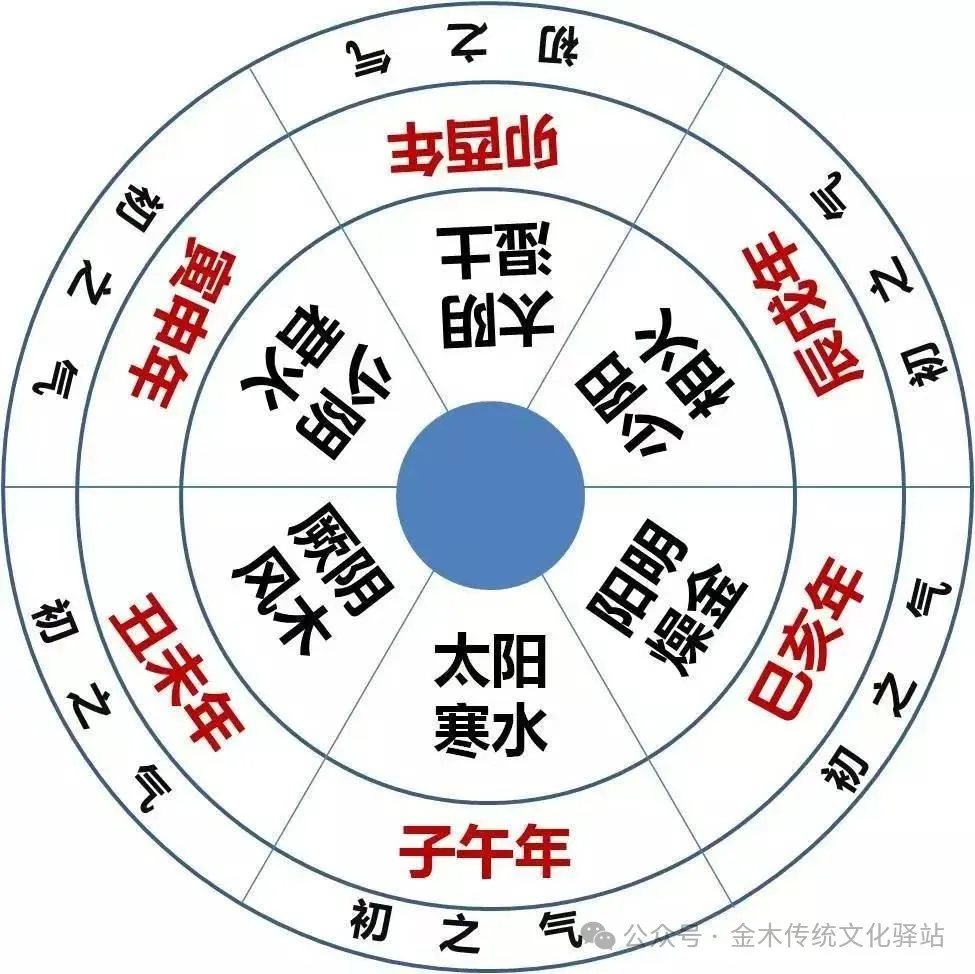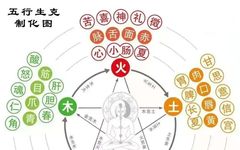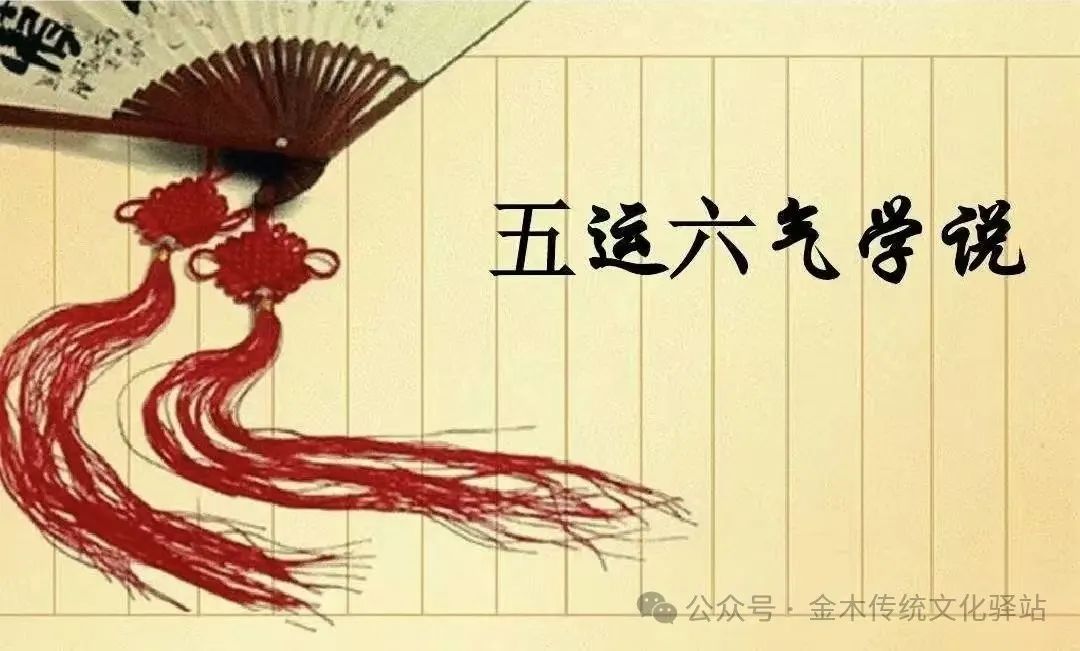
There are as many as seven articles in the Huangdi Neijing regarding the Five Movements and Six Qi. The Suwen states: “Without understanding the years of increase, the rise and fall of Qi, and the origins of deficiency and excess, one cannot be a craftsman.”
The Five Movements and Six Qi represent a high-level knowledge in Traditional Chinese Medicine (TCM), exploring the impact of climatic changes on the human body. The excess or deficiency of Qi and the interactions of the Five Elements can affect both physiological and pathological conditions in the body.
The Five Movements refer to the states and attributes of the Five Elements: Wood, Fire, Earth, Metal, and Water.
The Six Qi consist of the six natural climatic factors: Wind, Cold, Heat, Dampness, Dryness, and Fire.
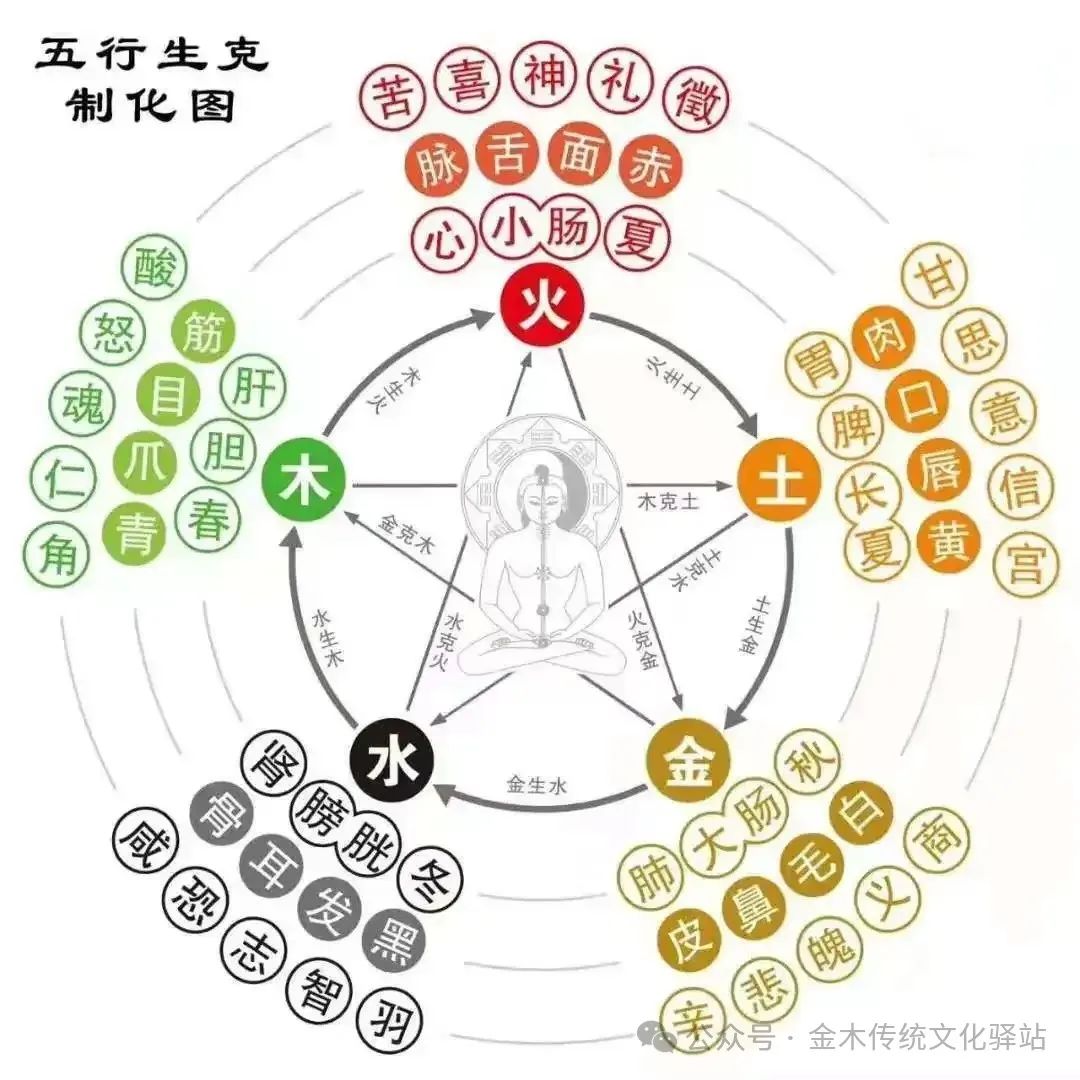
The Suwen states: “Earth corresponds to Jia and Ji, Metal corresponds to Yi and Geng, Water corresponds to Bing and Xin, Wood corresponds to Ding and Ren, Fire corresponds to Wu and Gui.”
Using the Ten Heavenly Stems, Jia and Ji correspond to the Earth Movement, Yi and Geng correspond to the Metal Movement, Bing and Xin correspond to the Water Movement, Ding and Ren correspond to the Wood Movement, and Wu and Gui correspond to the Fire Movement, collectively known as the Five Movements.
Using the Twelve Earthly Branches, Yi and Hai correspond to the Jueyin Wind Wood, Zi and Wu correspond to the Shaoyin Fire, Yin and Shen correspond to the Shaoyang Fire, Chou and Wei correspond to the Taiyin Damp Earth, Mao and Xi correspond to the Yangming Dry Metal, and Chen and Xu correspond to the Taiyang Cold Water, collectively referred to as the Six Qi.
From the year stem, the Five Movements are calculated, and from the year branch, the Six Qi are calculated. By observing the relationship between the movements and Qi, one can assess the changes in climate and the occurrence of diseases in that year. This is the basic content of the Five Movements and Six Qi.
The Huangdi Neijing identifies the six factors of Wind, Cold, Heat, Dampness, Dryness, and Fire as significant influences on health and disease, collectively referred to as the Six Qi.
Within the Five Movements and Six Qi, the Six Qi elucidate the characteristics of vertical climatic conditions on the ground, symbolized by the Earthly Branches, which can be classified into three Yin and three Yang based on Yin-Yang theory. If the Five Movements are characterized by temporal meteorological factors, the Six Qi are primarily concerned with spatial vertical meteorological conditions.
However, the Six Qi vary across different eras, and their changes are even more pronounced across the six segments of a year, thus emphasizing the importance of the external Qi in relation to the heavens and springs.
As pathogenic factors, the Six Qi were recognized by ancient scholars as potentially excessive, leading to the Six Evils. The diseases caused by the Six Qi can result in fever, and the interactions of the Six Qi can explain conditions such as Bi syndrome, various winds, diarrhea, edema, and pain. In the context of the Five Movements and Six Qi, the Six Qi as a disease exhibit deeper, richer, and more systematic characteristics.
These Six Qi are not only six climatic patterns that can cyclically appear but also important factors characterized by their Qi transformation, excess, deficiency, assimilation, and non-seasonal occurrences.
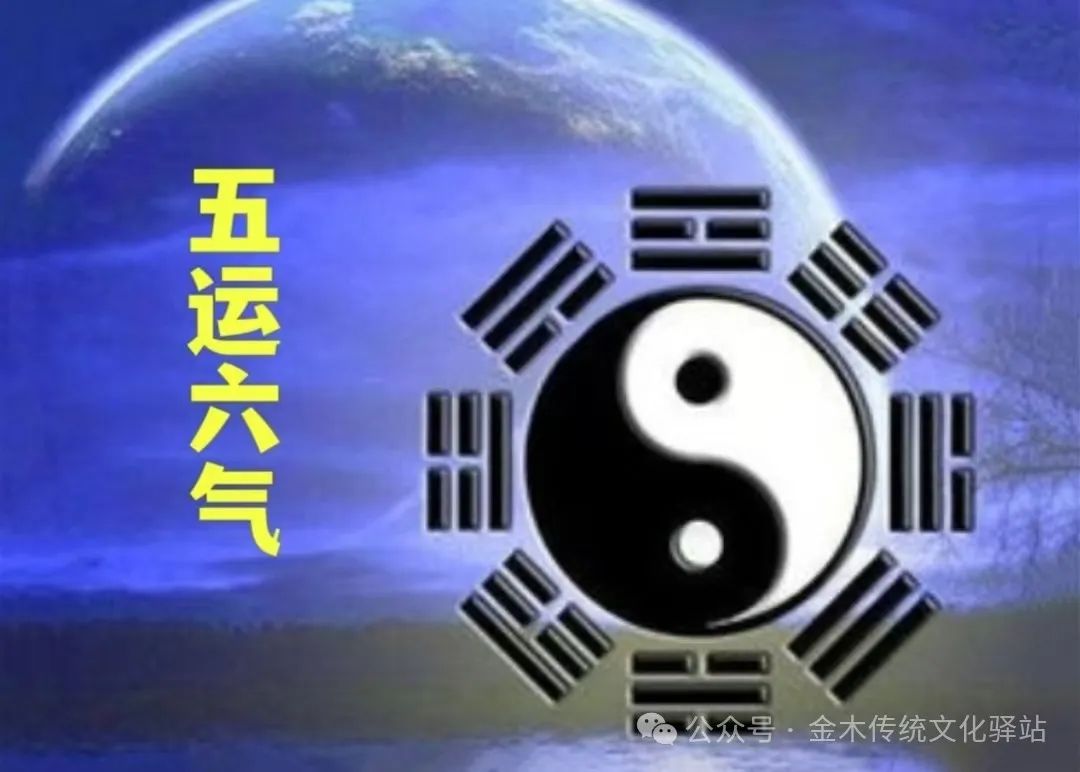
The Five Movements: are calculated based on the Ten Heavenly Stems (Jia, Yi, Bing, Ding, Wu, Ji, Geng, Xin, Ren, Gui) to determine the annual changes in the Five Elements of Wood, Fire, Earth, Metal, and Water. The Five Movements are divided into Major Movements, Principal Movements, and Guest Movements. The Major Movement governs the annual seasonal changes. The Principal Movement governs the normal climatic changes of the five seasonal periods within a year, each lasting seventy-three days and five periods, which remain fixed year after year. The Guest Movement governs the abnormal climatic changes of the five seasonal periods.
The Six Qi: are calculated based on the Earthly Branches (Zi, Chou, Yin, Mao, Chen, Si, Wu, Wei, Shen, You, Xu, Hai) to determine the annual Qi, dividing the twenty-four solar terms into six Qi, with four solar terms constituting one Qi. They are divided into Principal Qi, Guest Qi, and Guest-Principal combinations.
The Principal Qi consists of six phases representing the normal climate during the six segments of the year.
Initial Qi: Jueyin Wind Wood — Major Cold, Beginning of Spring, Rain Water, Awakening of Insects:
Second Qi: Shaoyin Fire — Spring Equinox, Clear and Bright, Grain Rain, Beginning of Summer;
Third Qi: Shaoyang Fire — Grain Full, Grain Planting, Summer Solstice, Minor Heat;
Fourth Qi: Taiyin Damp Earth — Major Heat, Beginning of Autumn, End of Heat, White Dew;
Fifth Qi: Yangming Dry Metal — Autumn Equinox, Cold Dew, Frost’s Descent, Beginning of Winter;
Final Qi: Taiyang Cold Water — Minor Snow, Major Snow, Winter Solstice, Minor Cold.
Guest Qi refers to the abnormal climatic changes of each year’s seasonal climate, also divided into six phases, differing from the Principal Qi in that it varies from year to year.
The order of Guest Qi begins with three Yin and ends with three Yang.
That is, Jueyin Wind Wood, Shaoyin Fire, Taiyin Damp Earth, Shaoyang Fire, Yangming Dry Metal, Taiyang Cold Water.
The arrangement of Guest Qi follows the sequence of three Yin and three Yang, connecting end to end like a loop, meaning one Yin (Jueyin), two Yin (Shaoyin), three Yin (Taiyin), one Yang (Shaoyang), two Yang (Yangming), three Yang (Taiyang). Yin follows Yang, and Yang follows Yin, hence it is said to be like a loop without end.
Guest-Principal combinations refer to the mutual generation and overcoming relationships between Guest Qi and Principal Qi. The sequence of Principal Qi remains unchanged, always from Initial Qi to Final Qi: Jueyin Wind Wood, Shaoyin Fire, Shaoyang Fire, Taiyin Damp Earth, Yangming Dry Metal, Taiyang Cold Water. However, the sequence of Guest Qi is also unchanging, beginning with three Yin and ending with three Yang.
However, the Initial Qi varies depending on the age of the Earthly Branch:
In the Year of the Rat or Horse, the Initial Guest Qi is Taiyang Cold Water, characterized by a hot and dry climate;
In the Year of the Ox or Sheep, the Initial Qi is Jueyin Wind Wood, characterized by a damp and cold climate;
In the Year of the Tiger or Monkey, the Initial Qi is Shaoyin Fire, characterized by a hot and windy climate;
In the Year of the Rabbit or Rooster, the Initial Qi is Taiyin Damp Earth, characterized by a dry and hot climate;
In the Year of the Dragon or Dog, the Initial Qi is Shaoyang Fire, characterized by a cold and damp climate;
In the Year of the Snake or Pig, the Initial Qi is Yangming Dry Metal, characterized by a windy and hot climate.
Generally speaking, the Qi of the heavens governs the weather, primarily in the first half of the year;
While the Qi of the springs governs the earth, primarily in the second half of the year.
In the Year of the Rat or Horse, Shaoyin Fire governs the heavens, while Yangming Dry Metal governs the springs;
In the Year of the Ox or Sheep, Taiyin Damp Earth governs the heavens, while Taiyang Cold Water governs the springs; In the Year of the Tiger or Monkey, Shaoyang Fire governs the heavens, while Jueyin Wind Wood governs the springs; In the Year of the Rabbit or Rooster, Yangming Dry Metal governs the heavens, while Shaoyin Fire governs the springs; In the Year of the Dragon or Dog, Taiyang Cold Water governs the heavens, while Taiyin Damp Earth governs the springs; In the Year of the Snake or Pig, Jueyin Wind Wood governs the heavens, while Shaoyang Fire governs the springs.
The Five Movements refer to the changes in the Eight Qi of excess and deficiency of the Five Elements of Wood, Fire, Earth, Metal, and Water calculated based on the Ten Heavenly Stems.
Among the Ten Heavenly Stems, Jia, Bing, Wu, Geng, and Ren are Yang, representing excess; while Yi, Ding, Ji, Xin, and Gui are Yin, representing deficiency. Jia and Ji transform into Earth, Yi and Geng transform into Metal, Bing and Xin transform into Water, Ding and Ren transform into Wood, and Wu and Gui transform into Fire.
The Ten Heavenly Stems correspond to the last digit of the Gregorian year, with traditional calculations as follows: Jia 4, Yi 5, Bing 6, Ding 7, Wu 8, Ji 9, Geng 0, Xin 1, Ren 2, Gui 3. Among these, Geng 0 and Yi 5 belong to Metal, Xin 1 and Bing 6 belong to Water, Ren 2 and Ding 7 belong to Wood, Gui 3 and Wu 8 belong to Fire, Jia 4 and Ji 9 belong to Earth. Odd numbers represent deficiency, while even numbers represent excess. Excess harms the six fu organs, while deficiency harms the five zang organs.
Additionally, some people directly assign numbers to the Ten Heavenly Stems, so Jia 1, Yi 2, Bing 3, Ding 4, Wu 5, Ji 6, Geng 7, Xin 8, Ren 9, Gui 10, thus Jia 1 and Ji 6 belong to Water, Yi 2 and Geng 7 belong to Fire, Bing 3 and Xin 8 belong to Wood, Ding 4 and Ren 9 belong to Metal, Wu 5 and Gui 10 belong to Earth. This corresponds completely with the He Tu, hence I prefer the latter as it aligns better with the principles of the I Ching.
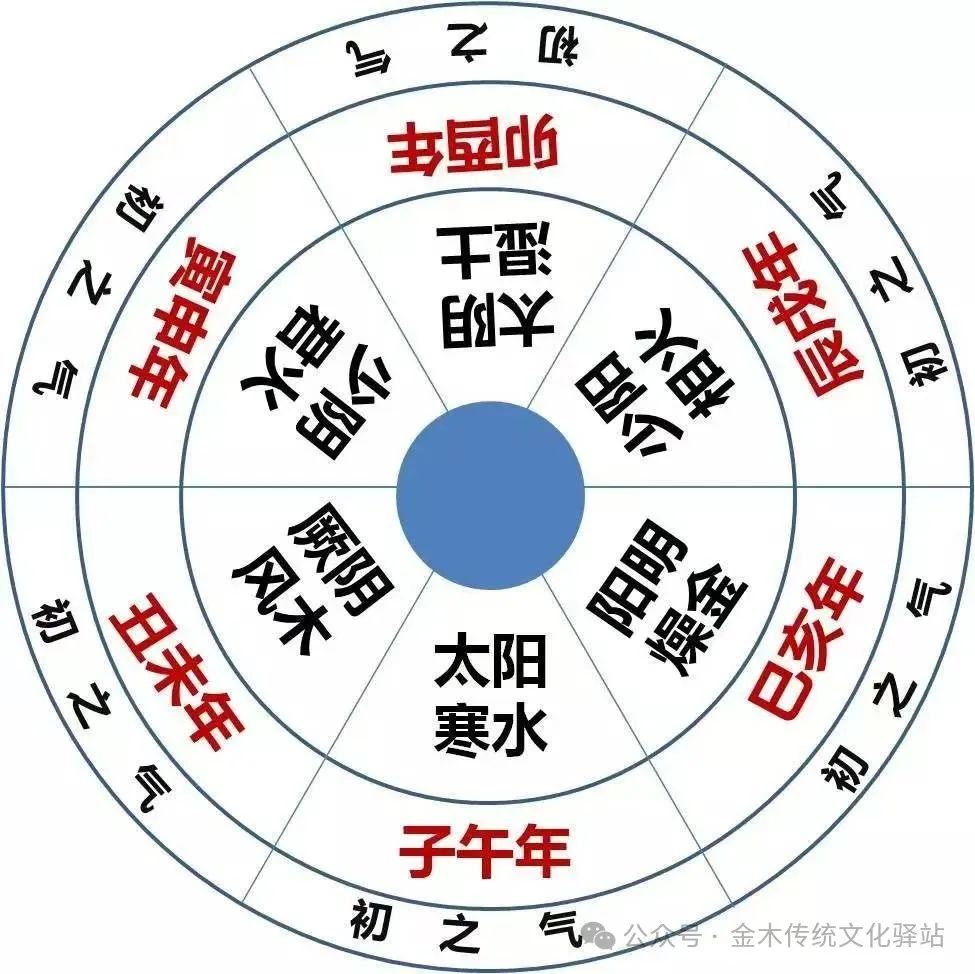
Correspondence of Earthly Branches and the Five Elements:
Zi and Wu correspond to Fire, Chou and Wei correspond to Damp Earth, Yin and Shen correspond to Fire, Mao and Xi correspond to Dry Metal, Chen and Xu correspond to Cold Water, Si and Hai correspond to Wind Wood.
Correspondence of Heavenly Stems:
0, 1 represent the Large Intestine and Lung, corresponding to exterior and interior;
2, 3 represent the Bladder and Kidney, corresponding to exterior and interior;
4, 5 represent the Gallbladder and Liver, corresponding to exterior and interior;
6, 7 represent the Small Intestine and Heart, corresponding to exterior and interior;
8, 9 represent the Stomach and Spleen, corresponding to exterior and interior.
Correspondence of Heavenly Stems to Organs:
Jia corresponds to the Gallbladder, Yi to the Liver, Bing to the Small Intestine, Ding to the Heart, Wu to the Stomach, Ji to the Spleen,
Geng corresponds to the Large Intestine, Xin to the Lung, Ren to the Bladder, and Gui to the Kidney.
Correspondence of Heavenly Stems to Body Parts:
Jia corresponds to the Head, Yi to the Neck, Bing to the Shoulder, Ding to the Heart, Wu to the Abdomen, Ji to the Abdomen,
Geng corresponds to the Navel, Xin to the Thigh, Ren to the Shin, and Gui to the Feet.
Wind is the fundamental Qi of Jueyin, Heat is the fundamental Qi of Shaoyin,
Dampness is the fundamental Qi of Taiyin, Fire is the fundamental Qi of Shaoyang,
Dryness is the fundamental Qi of Yangming, Cold is the fundamental Qi of Taiyang.
Zi Water corresponds to the Bladder, blood, urinary system, reproductive system, and ear canal;
Chou Earth corresponds to the Abdomen and Spleen;
Yin Wood corresponds to the Gallbladder, hair, veins, hands, feet, and nails;
Mao Wood corresponds to the Liver, ten fingers, limbs, and hair;
Chen Earth corresponds to the Skin, muscles, shoulders, chest, and digestive system;
Yi Fire corresponds to the Teeth, throat, anus, eyes, and heart system;
Wu Fire corresponds to the Eyes, Head, and cardiovascular system;
Wei Earth corresponds to the Stomach, Skin, muscles, Spleen, and digestive system;
Shen Metal corresponds to the Large Intestine, meridians, Lung, skeletal, and respiratory system;
You Metal corresponds to the Skeleton, Small Intestine, essence, blood, Lung, and respiratory system;
Xu Earth corresponds to the Legs, Mingmen, bare feet, Stomach, Skin, and muscles;
Hai Water corresponds to the Head, Kidney, blood, and urinary system.
The governance of the heavens and springs represents the pairing of Yin and Yang.
Shaoyin Fire governs the heavens, while Yangming Dry Metal governs the springs;
Jueyin Wind Wood governs the heavens, while Shaoyang Fire governs the springs;
Taiyin Damp Earth governs the heavens, while Taiyang Cold Water governs the springs.
In the Year of the Rat or Horse, Shaoyin Fire governs the heavens, representing excess;
In the Year of the Ox or Sheep, Taiyin Damp Earth governs the heavens, representing deficiency;
In the Year of the Tiger or Monkey, Shaoyang Fire governs the heavens, representing excess;
In the Year of the Rabbit or Rooster, Yangming Dry Metal governs the heavens, representing deficiency;
In the Year of the Dragon or Dog, Taiyang Cold Water governs the heavens, representing excess;
In the Year of the Snake or Pig, Jueyin Wind Wood governs the heavens, representing deficiency.
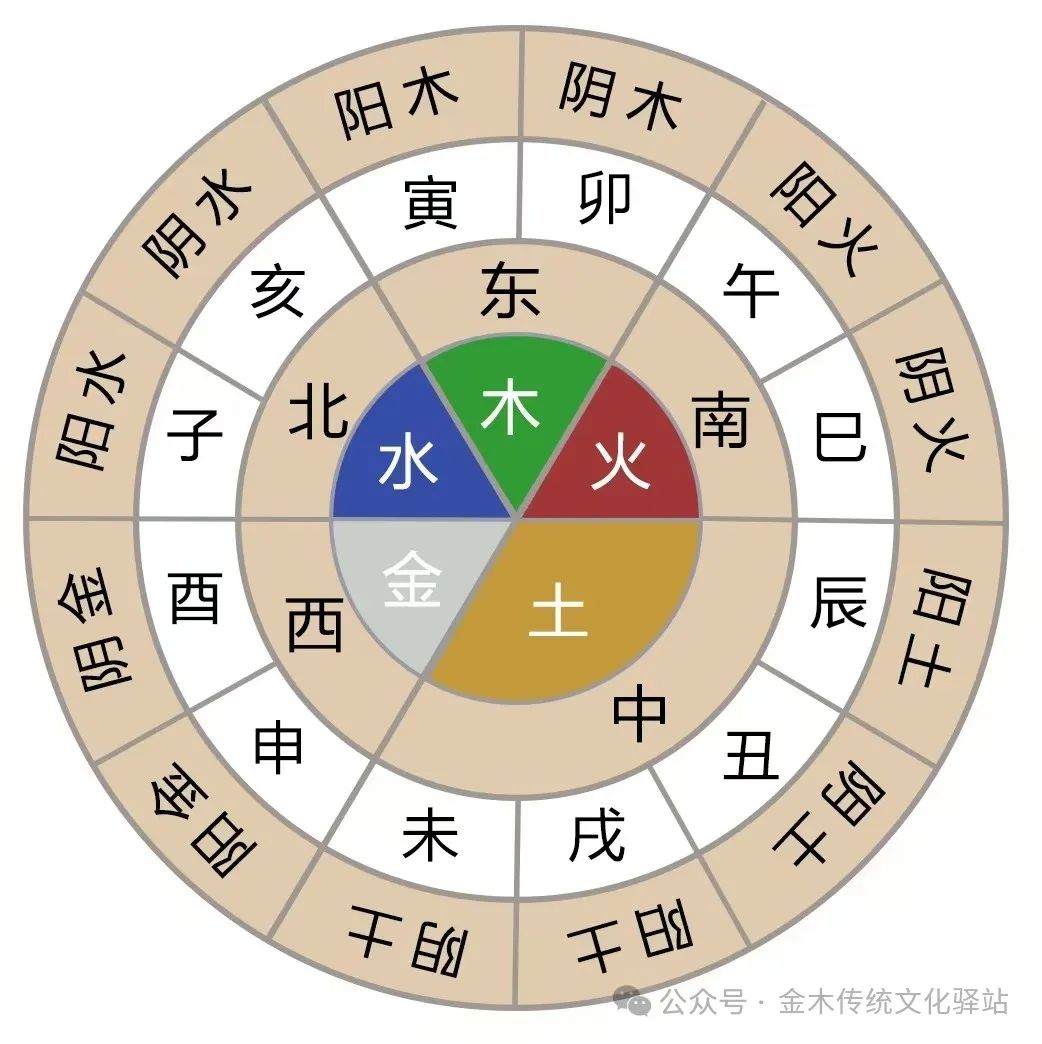
Using the Five Movements and Six Qi to analyze constitution involves the Gregorian calendar and solar calendar. The Gregorian year can be used to infer one’s zodiac sign and also to understand the excess and deficiency of Qi for that year.
People born in the first half of the year tend to have a hot constitution;
People born in the second half of the year tend to have a cold constitution, with poorer gastrointestinal health.
From January 21 to March 21 is the Initial Qi, governed by Jueyin Wind Wood; those born during this time have strong Liver Qi;
From March 21 to May 21 is the Second Qi, governed by Shaoyin Fire; those born during this time have strong Heart Fire and are prone to skin diseases;
From May 21 to July 22 is the Third Qi, governed by Shaoyang Fire; those born during this time have strong Fire and are sensitive to heat, easily experiencing excess heat;
From July 22 to September 22, Taiyin Damp Earth governs; those born during this time have poor Spleen and Stomach health, with cold stomachs and are prone to arthritis;
From September 22 to November 22 is the Fifth Qi, governed by Yangming Dry Metal; those born during this time have poor Large Intestine function, prone to diarrhea or constipation, excessive sweating, and cervical spondylosis;
From November 22 to the following January 21 is the Final Qi, governed by Taiyang Cold Water; those born during this time are sensitive to cold and prone to arthritis and cervical spondylosis.
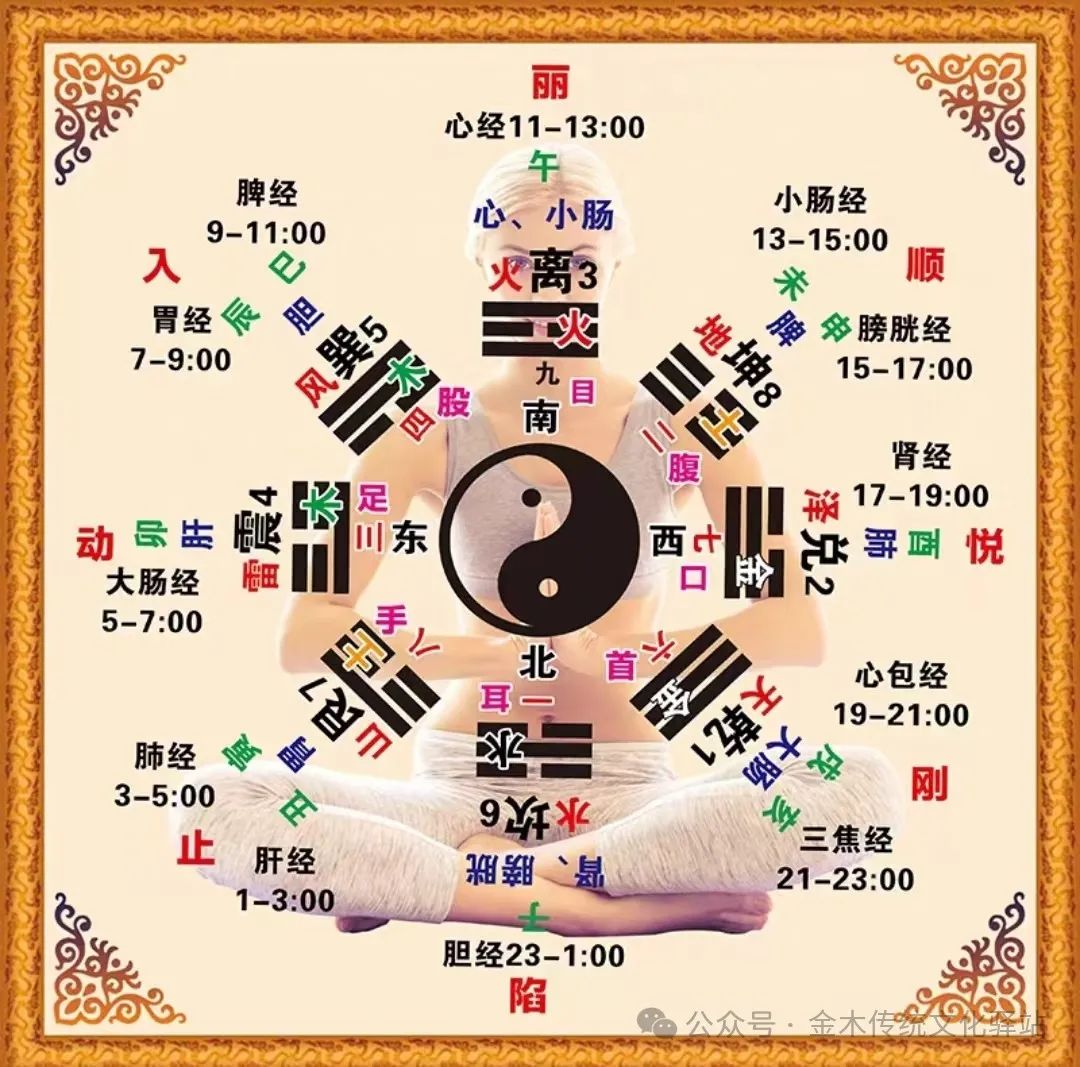
Each day is divided into 12 time periods, corresponding exactly to the Earthly Branches:
Zi Hour (23:00~1:00) corresponds to the Gallbladder Meridian,
Chou Hour (1:00~3:00) corresponds to the Liver Meridian,
Yin Hour (3:00~5:00) corresponds to the Lung Meridian,
Mao Hour (5:00~7:00) corresponds to the Large Intestine Meridian,
Chen Hour (7:00~9:00) corresponds to the Stomach Meridian,
Si Hour (9:00~11:00) corresponds to the Spleen Meridian,
Wu Hour (11:00~13:00) corresponds to the Heart Meridian,
Wei Hour (13:00~15:00) corresponds to the Small Intestine Meridian,
Shen Hour (15:00~17:00) corresponds to the Bladder Meridian,
You Hour (17:00~19:00) corresponds to the Kidney Meridian,
Xu Hour (19:00~21:00) corresponds to the Pericardium Meridian,
Hai Hour (21:00~23:00) corresponds to the Sanjiao Meridian.
People born during the Zi Hour have strong Gallbladder Fire;
People born during the Yin Hour have weak Lung Qi;
People born during the Mao Hour have poor Large Intestine health, prone to diarrhea;
People born during the Chen Hour have poor Stomach health;
People born during the Wu Hour have strong Heart Fire, prone to excess heat.
Thus, we can infer the constitution of patients based on their birth date.
The Five Movements and Six Qi represent the cyclical nature of the heavenly way, which cannot be changed; every person is born into the world, influenced by the Qi of heaven and earth.
The character for “disease” consists of two parts: the outer part represents the Six Qi (Wind, Cold, Heat, Dampness, Dryness, Fire), while the inner part represents Fire, the Heart, and emotions. The external factors cannot be changed, but the internal emotions can be regulated.
Ancient scholars discovered that anger causes Qi to rise, joy causes Qi to relax, sadness causes Qi to dissipate, fear causes Qi to descend, shock causes Qi to become chaotic, and worry causes Qi to stagnate.
Joy harms the Heart, anger harms the Liver, sadness harms the Lung, shock and fear harm the Kidney, and worry harms the Spleen and Stomach. For health, we must manage our emotions, learn to control them, and avoid excessive joy, anger, or sadness, as these can easily lead to disease.
Using the Five Movements and Six Qi to analyze the overall situation of the year indicates the diseases that are likely to arise, but not everyone will experience these diseases. TCM studies the causes of diseases, which involve two factors: one is Qi mechanism, and the other is Shen mechanism, combined they form the disease mechanism.
The disease mechanism is the changes of the three Yin and three Yang. When the Qi mechanism acts on the human body, it requires the Shen mechanism to interact with the external Qi mechanism. The responses vary among individuals, determined by the internal Shen mechanism, leading to different outcomes when the Qi mechanism acts on the body.
Disseminatingknowledge of TCM health preservation, promoting Chinese traditional culture,sharing health concepts, and conveying care, passing health knowledge and traditional culture to more friends…
People are great because of their dreams; we are unique because of our love.
Liu Qing Ning: 182 7127 1941 or (WeChat ID)
Yang Shun Song: 138 7171 7447 or (WeChat ID)
